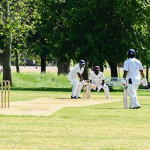Coverage of Alka Sehgal Cuthbert’s disinvitation from Rethinking Education conference
For Alka Sehgal Cuthbert’s statement on her disinvitation, click here.
Academic who criticised teaching ‘white privilege’ in schools no-platformed from conference
Dr Alka Sehgal Cuthbert is told her participation on the panel would make other speakers feel ‘unsafe’
Telegraph, 22 September 2023
An academic who has criticised the teaching of “white privilege” in schools has been no-platformed from an education conference over claims she would make other speakers feel “unsafe”.
Dr Alka Sehgal Cuthbert, 62, was told her panel discussion at the Rethinking Education conference on Saturday had been cancelled because of complaints from speakers and delegates about her attendance.
Dr Cuthbert, director of Don’t Divide Us, a campaign group which challenges the idea that Britain is systemically racist, had been invited to speak on a panel about “indoctrination within education” and “how we can avoid it”.
However, in an email from a conference organiser on Friday, she was told that the company had been contacted by seven speakers and delegates who said “they would not feel safe to appear at the conference alongside a representative of Don’t Divide Us”.
Race row academic barred to ensure ‘psychological safety’ of speakers
The inclusion of Alka Sehgal Cuthburt at a conference made seven people reportedly feel unsafe.
The Times, 23 September 2023
An academic who opposes critical race theory has been turned away from an education conference over concerns that she threatens the “psychological safety” of other speakers.
Alka Sehgal Cuthbert, director of the pressure group Don’t Divide Us (DDU), was to speak this weekend at the Rethinking Education conference in London. Cuthbert has previously accused schools of breaking impartiality laws and using third-party providers to teach pupils critical race theory — the idea that racism is deep-rooted in society.
James Mannion, the conference organiser, told Cuthbert on Thursday that “psychological safety” concerns had been raised about her presence on a panel discussing indoctrination in schools.
As an organisation, DDU says it believes in “colourblind anti-racism” in which everyone is treated as “an individual worthy of respect regardless of race, religion or the colour of their skin”. Lord Sewell of Sanderstead, who compiled a report into ethnic disparities for Boris Johnson, is on its advisory board.
Mannion said: “We have been contacted by seven people — a combination of speakers and delegates — who communicated very clearly that they would not feel safe to speak at or attend the conference alongside a representative of Don’t Divide Us. When someone tells you they feel unsafe, you need to listen.”
I’ve been cancelled for standing up to racial identity politics
An education conference has disinvited me because my presence would make speakers feel ‘unsafe’.
Alka Sehgal Cuthbert, spiked, 22 September 2023
It was going to happen at some point. You can’t be director of a grassroots campaign like Don’t Divide Us (DDU), committed to a liberal, democratic approach to race issues, without expecting some blowback. But to be cancelled three days before I was due to speak at the Rethinking Education conference, I have to admit, came as an unwelcome surprise.
I was due to speak in a debate tomorrow entitled ‘What is indoctrination within education and how can we avoid it?’. But because I actively campaign against racial indoctrination in schools, I was disinvited. (Ironically, I was also the only person of colour on the panel.)
I knew this session would be an outlier among the other, more right-on conference offerings. And I knew that, despite my educational and academic experience and qualifications, my role at DDU would prompt some behind-the-scenes discussions at Rethinking Education. So, when I received confirmation of my invitation, I respected the organisers for their courage.
But that respect vanished when I received notice yesterday, just two days before the conference, that I had been disinvited. The reason? Seven individuals had contacted the director of Rethinking Education, James Mannion, to tell him they felt so distressed and scared that someone from Don’t Divide Us was speaking that they would not attend the conference if I was a speaker.
In my communications with Mannion, he attempted to justify cancelling me on the grounds that it was necessary to safeguard all delegates and speakers. I pointed out that safeguarding pertains to adults protecting children. The other delegates and speakers are not children. If they feel so scared of talking to me in a public forum, how would they cope in a classroom?
‘Ridiculous’: Educator and head of Don’t Divide Us ‘ostracised’ from event
Sky News Australia, 25 September 2023
Dr Alka Sehgal Cuthbert – an educator and head of ‘Don’t Divide Us’ – being ostracised from an event is “completely ridiculous,” according to writer and broadcaster Esther Krakue.
Dr Cuthbert has been banned from speaking at an education conference because the organisers claimed seven other speakers said they would not feel safe to appear alongside a representative of ‘Don’t Divide Us’.
The organiser said: “I strongly believe … people should be prepared to subject their ideas to scrutiny and challenge – However, psychological safety is a precursor to free and open debate … once the matter was brought to our attention, safety considerations needed to be our primary focus.”
“It really does make you question why they even bother being educators in the first place because apparently their job is supposed to be challenging the younger generation,” Ms Krakue told Sky News host Andrew Bolt.
“But if they can’t handle it themselves, you really wonder what business they have teaching.”
Young must learn to confront disagreeable ideas
Yes, words can cause pain and distress but safe spaces and censorship will not build resilience.
Joanna Williams, The Times, 25 September 2023
A decade ago, “safe spaces” began appearing on American college campuses. Initially rough-and-ready places set aside for students from minority groups, they rapidly morphed into rooms bedecked with bean bags, cookies and colouring books for use by anyone in distress.
When speakers such as the feminist Christina Hoff Sommers or the social scientist Charles Murray were booked to talk, the safe space became a way for students to retreat from confronting ideas they found distasteful, while simultaneously registering their protest. The psychological harm they claimed to experience became weaponised in calls for censorship.
Fast forward ten years and the safe space has not just migrated across the Atlantic, it has long outgrown a single room. The cancelling of the academic Alka Sehgal Cuthbert from the Rethinking Education conference last weekend, in order to ensure the “psychological safety” of other participants, shows us that protection from mental distress is now a general expectation. Writing in 2014, the director of the US-based Foundation for Individual Rights and Expression, Greg Lukianoff, wrote that students wanted not free speech but freedom from speech. The same, it seems, is now true of education professionals.
I have shared platforms with Sehgal Cuthbert at various conferences and events stretching back over many years. Her contributions are always more intelligent and carefully considered than mine. So how have we reached a point where a scholarly, middle-aged woman is thought to pose such a risk to the mental wellbeing of her fellow panellists that she is pulled from a public debate?
Supportive letter in The Times
25 September 2023
Sir, Alka Sehgal Cuthbert was prevented from speaking at the Rethinking Education conference this weekend because, according to James Mannion, the organiser of the conference, a tiny minority (seven) of both speakers and delegates were concerned about their “psychological safety” (report, Sep 23). It is both misguided and dangerous to assert, as Mannion does, that “psychological safety is a precursor to free and open debate and the need to subject ideas to scrutiny”. This is simply another way of saying that a person feels unsafe hearing views contrary to their own. Cuthbert has taught English literature in inner London schools, been a member of the Ofsted advisory panel on English and given evidence to the all-party parliamentary group inquiry on knowledge and skills in education. Whether one agrees or disagrees with her views, she is well qualified to speak and it would surely be instructive to listen to what she has to say with an open mind, at a conference entitled Rethinking Education. Unfortunately, it appears open-minded debate and discussion with those who may disagree with you is too threatening and “unsafe” for Mannion and his cohorts.
Peter Slot
London W4
On related issues, from DDU advisory council member Professor Tim Luckhurst
The Left’s tactics of the Inquisition are stifling free speech at our universities
The indoctrination of staff on race and gender serves only to silence debate.
Tim Luckhurst, London Evening Standard, 31 August 2023
Professor Deborah Prentice, the first American to serve as vice-chancellor at the University of Cambridge, has promised to provide free-speech events for students. These occasions will not take the form of conventional debates.
Professor Prentice explains that debating is too confrontational. Cambridge students will have the opportunity to participate in dialogues instead.
I applaud the initiative, but I hope their gentle introduction to the discussion of controversial topics will soon persuade them that robust debate is preferable to this low-octane alternative.
As principal of South College, Durham University, I lead students who are in every way as bright and engaged as any in Cambridge and many are very open to robust debate. In successive terms last year, two South College students occupied the presidency of debating society the Durham Union. They brought to the union’s historic chamber speakers including a former member of Donald Trump’s White House team, the conservative columnist Peter Hitchens, Lord Frost, Andy Burnham and Nimco Ali.
Debates were packed with students determined to hear opinions on topics including the achievements of Thatcherism, Islam and civil rights and the merits of capitalism.
George Orwell’s advice that “if liberty means anything at all, it means the right to tell people what they do not want to hear” is honoured in student societies. At the same time there is a real free speech crisis in British universities.


